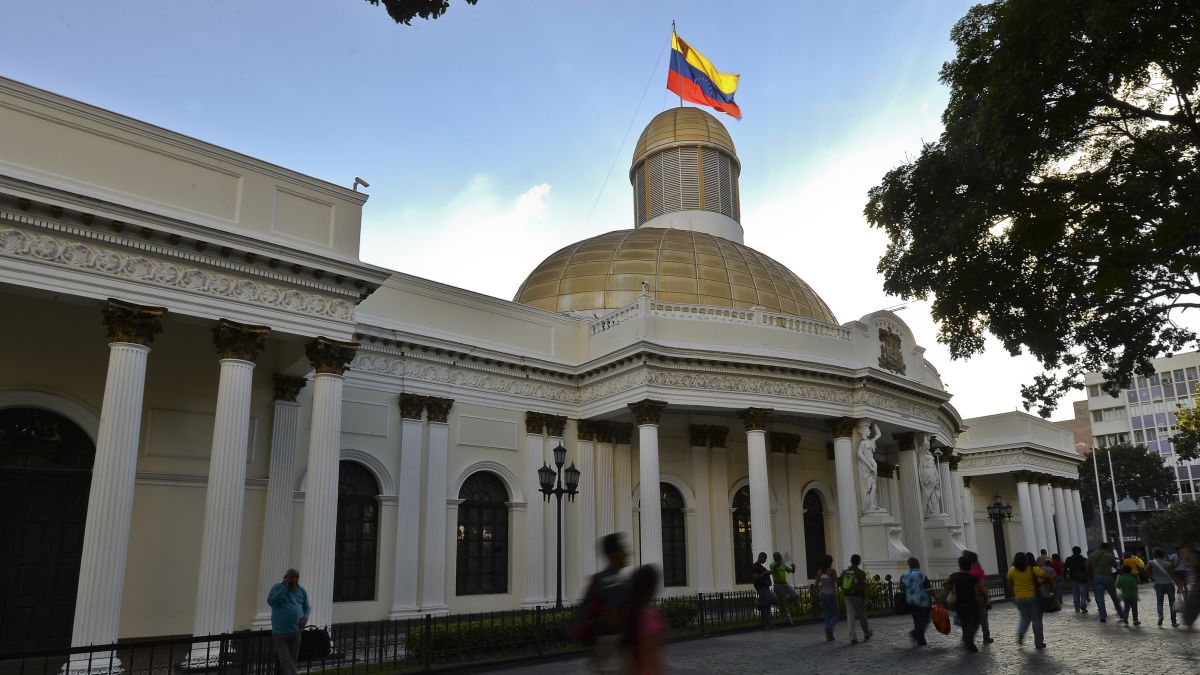
(Noria Research, 31.Jul.2021) — For several years now, Venezuela has been plagued by an unprecedented combination of political, institutional, economic, social, health, and security crises.
After losing control of the Parliament in 2015, President Nicolás Maduro’s government declared a state of emergency that has not been lifted since. Dissent and protest have been fiercely suppressed, and political pluralism has become increasingly limited. In turn, the parliamentary opposition, who stood behind the figure of Juan Guaidó over the past two years, has called upon the United States to retaliate by cutting off the state’s already-shrinking sources of income and threatening military intervention.
State institutions have long failed to preserve the minimum material, legal and even physiological living standards that were maintained with difficulty until just over six years ago. They do, however, continue to encourage the accumulation of capital by civilian and military groups that increasingly overlap with the ruling elite. In this context, Venezuelan people must often choose between living in deprivation, suffering and constant torment, or embarking on a perilous exodus toward faraway lands. Since 2014, five million Venezuelans, or 15% of the country’s inhabitants, have chosen the latter option.
The situation’s more dramatic aspects are often played up by national and international media, with a focus on spectacular anti-government protests and political infighting. However, the urgent calls for a peaceful and democratic outcome to this crisis, now become the norm, often obscure the complexity of the country’s authoritarian system, and of a political landscape in which national, regional and global dynamics are intertwined.
To be sure, the “humanitarian crisis” or “complex humanitarian emergency” that emerged shortly after the death of Hugo Chávez and election of Maduro in 2013 has much to do with the latter’s refusal to relinquish or share power. But the underlying levers of power wielded by this so-called “failed” or “rogue” state are much more pervasive and deeply entrenched in Venezuelan society, given the increasingly blurred line between the public and private sectors and the continued fragmentation of violence.
This project aims to analyze the dynamics behind the perpetuation and banalization of the multifaceted Venezuelan crisis. The point is not, of course, to downplay the seriousness of the present moment, which cannot be reduced to a political or media-fueled fiction: the crisis is both subjectively experienced by a large number of people, and objectively measurable through data.
However, in examining the everyday behavior, interactions, and representations of intermediate, subordinate and other anonymous actors of social and political life, this project’s contributors understand that, contrary to a great many expert and partisan predictions, the ruling political power has not necessarily been weakened by the country’s collapse. In many regards, the opposite seems to have happened, although one should not rule out a priori potential new scenarios involving public protests, military action, or even elections.
Through six interviews, our researchers explore the ways in which the exception has become the norm in Venezuelan society. Drawing from recent fieldwork and archives, they examine some of the many intertwined dynamics in play, their particularities and connections to past crises, and the ways in which they have structured the daily lives and expectations of Venezuelans in their country and abroad.11. Most of the interviews followed on a series of discussions initiated at the public conferences hosted by the Interdisciplinary Studies Group on Venezuela (GEIVEN) in Paris and Lyon in 2019.
The Contemporary State and Oil: The Complex Ties Between Politics and the Economy
Ever since the first oil concessions were granted to foreign companies in the 1910s, the fortunes of the Venezuelan state have been closely tied to oil extraction and trade.
As a counterpoint to a significant body of academic literature on “oil states,” Arnoldo Pirela analyzes the counterproductive effect of the reigning paradigm on national economic development. Pirela argues that this paradigm, under which states mass-invest the profits drawn from oil booms into other sectors, is based on a traditional landowning model.
Indeed, although the rollback of social policies between the Chávez and Maduro years was largely linked to the drop in oil prices, it was the mobilization of the military and circumvention of the existing institutional framework in the name of the “Revolution” that gave full rein to the predatory practices of the ruling elite at the expense of basic infrastructure and public services — and at the expense of the citizens who need them the most during the current crisis.
In this context, Yoletty Bracho explores the limits of the revolutionary project, with a focus on the relationship between the working classes and the state. Indeed, the participatory, redistributive policies rolled out by the Chavista governments were promoted by left-wing activists hoping to “transform the state from the inside”, working with organizations present in the barrios (working-class districts). But the growing fragility of participatory initiatives and the deterioration of the crisis have shown that most collaborative projects were circumstantial.
Citizens are nowadays more likely considered “beneficiaries” of humanitarian aid rather than “right-holders”, while aid workers now play a central role in handling the serious problems of everyday life. For matters of social assistance and redistribution, working-class Venezuelans have had to adapt to those new players, who tend to prioritize issues of subsistence over politics.
Dealing with Official and Clandestine Violence
While the state has increasingly relinquished the management of social issues to humanitarian organizations, it has become a central actor of everyday violence.
Keymer Ávila uses the statistical processing of a variety of data to analyze everyday institutional violence. To be sure, the repression of political opponents and dissidents has surged over the past few years, through both official and clandestine – and sometimes deadly – channels. Meanwhile, the “slow-drip massacre” of lower-class, racialized young men (morenos) under the pretext of combating crime has become an everyday tragedy. To a wide extent, state violence is differentiated by class, race and gender. It is also perceived in society through the prism of those intersecting categories, as existing forms of violence are treated differently depending on the opposition groups and dissidents that address them, and on their respective resources and influence.
But this violence is not inflicted on a passive population. Within the country’s barrios, there are various ways of managing institutional and non-institutional violence. Verónica Zubillaga describes the role of women, who develop strategies for taking care of their families and neighbors and for limiting the violence that they encounter.
However, the viability of these strategies is highly dependent on local circumstances and ever-changing state policies, lowering these women’s room for maneuver. In this regard, “mano dura” policies are synonymous with an escalation of armed conflict between the state and the gangs that develop in lower-class districts. As a result, a climate of fear has set in, while women are silenced and deprived of the “conversational” tools that they would normally use to defuse interactions with violent actors.
Venezuela as an International Issue: From Migration Experiences to the International stage
These days, Venezuelan society no longer exists exclusively within the borders of the state, but also outside of them, as Venezuela has become a prominent international issue.
Through a case study of Colombia, Fernando Garlin Politis explores the contradictions in migration policies toward Venezuelan refugees in Latin American countries. Colombia’s approach has often been described as an “open door policy”, and yet the management of migration by this neighbor state includes numerous administrative barriers that make it difficult for Venezuelans to settle permanently. During the lockdown imposed to curb the COVID-19 pandemic, many Venezuelan immigrants lost their livelihoods and had no choice but to return to their home country. The Maduro government then forced them to quarantine in squalid, restrictive conditions, making their return at least as arduous as their departure.
With regard to migration as well as international policy, the decisions of the White House have proved deeply consequential for Venezuelans. Venezuela even became a major topic during the 2020 American presidential race. Alejandro Velasco describes how the Trump administration positioned itself as the “defender of democracy” to gain an edge in the election, only to adopt a largely counterproductive policy: economic sanctions intended to target the Venezuelan state instead exacerbated its citizens’ daily suffering while increasing their dependence on government assistance.
Moreover, unconditional US support for young deputy Juan Guaidó as “interim president” emboldened him to play a game of one-upmanship against President Maduro, who yet turned out to be much stronger than what election results might indicate.
____________________

